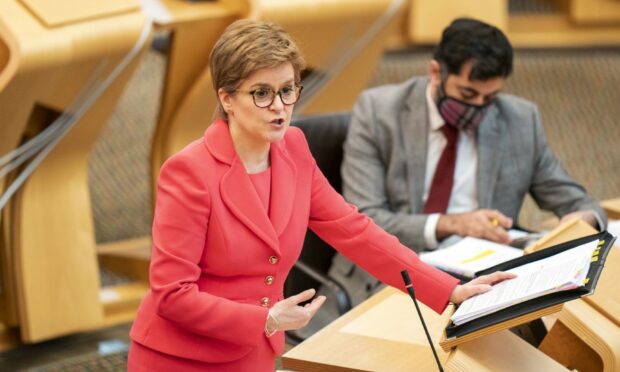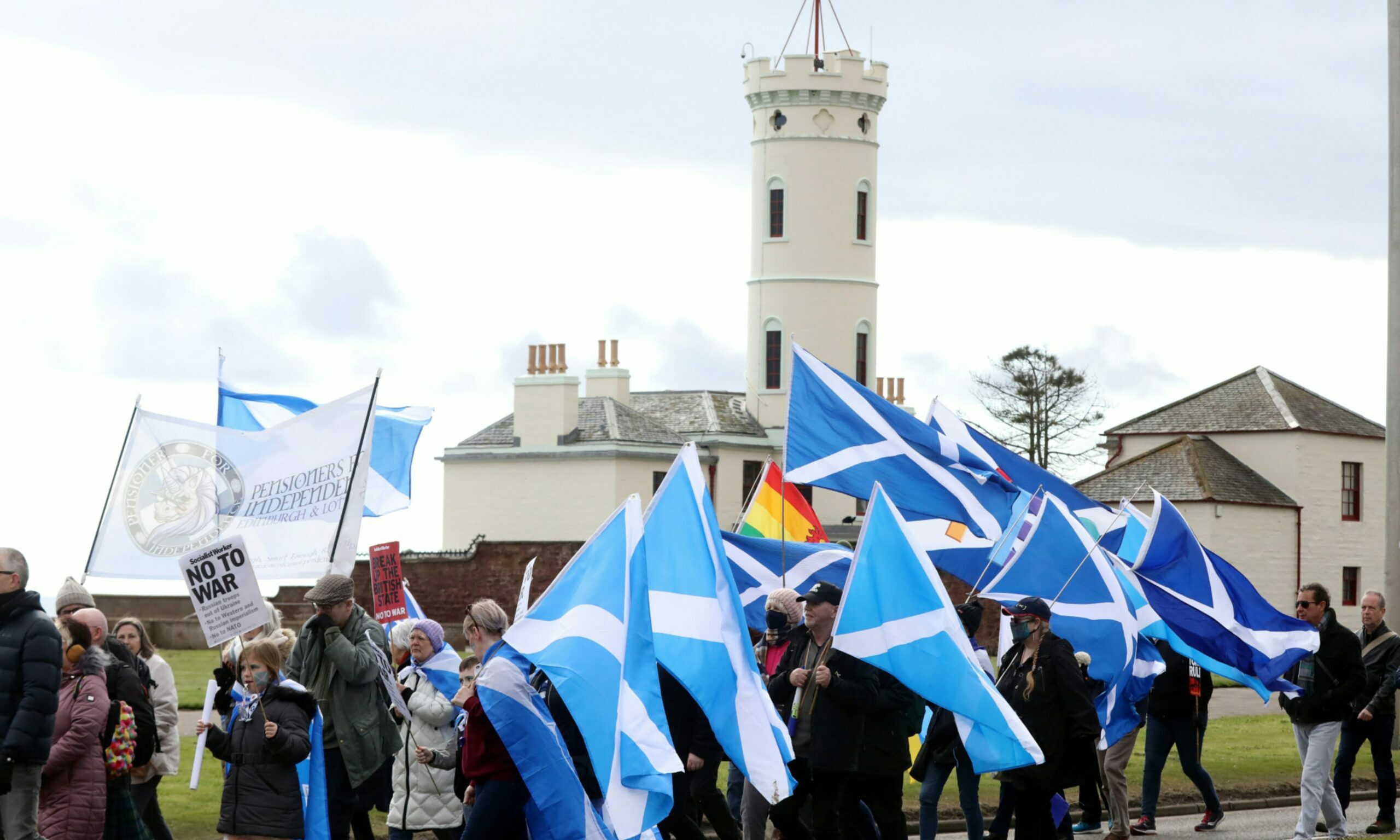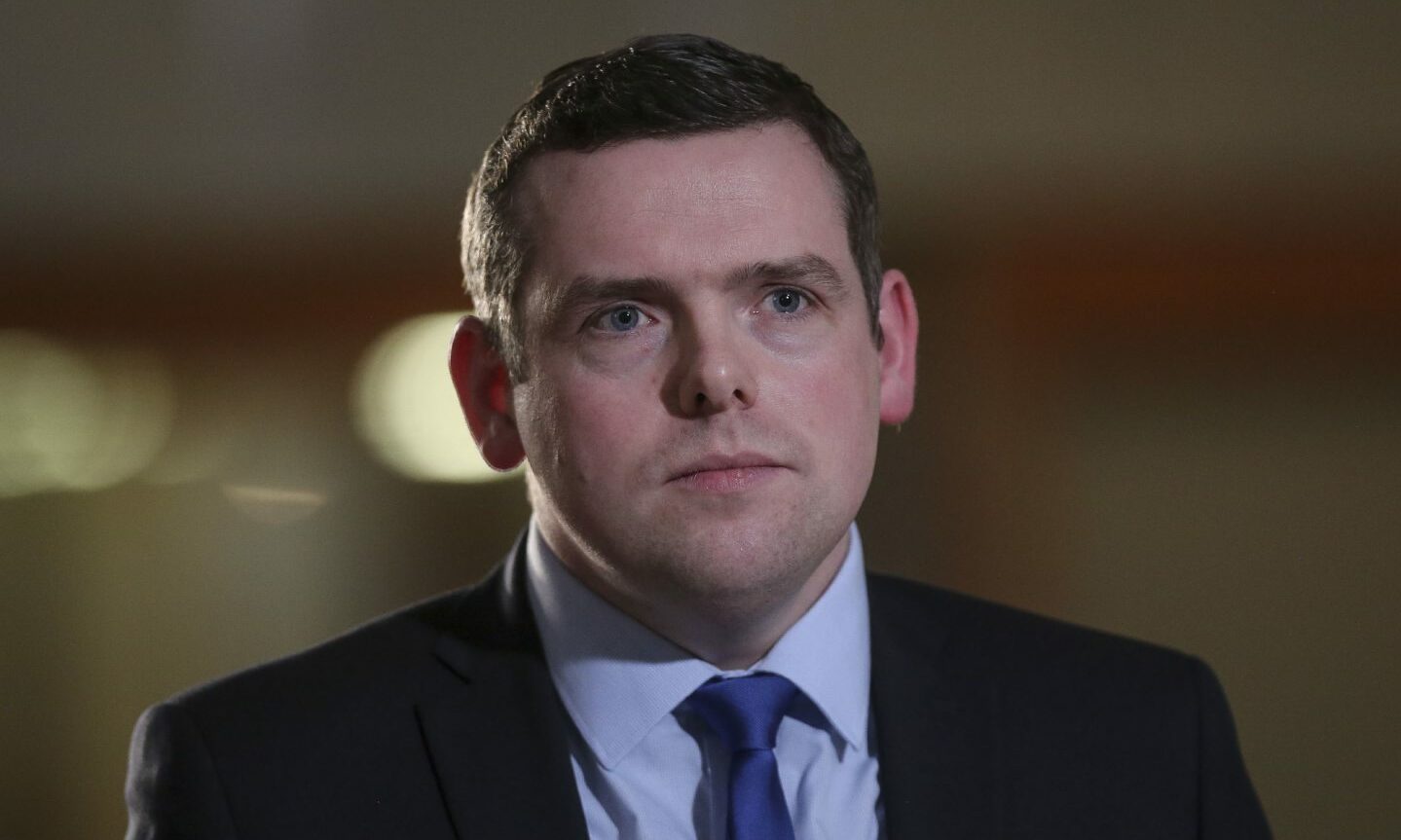The first minister is facing a backlash over plans to fight the next UK general election on independence alone, as an expert warns “there’s no such thing” as a “de facto” referendum.
Professor James Mitchell said the first minister cannot “dictate the terms” of a Westminster ballot when voters go to the polls.
He insisted elections were “distinct” from referendums, since members of the public typically don’t just vote on a single issue.
The comments came as unionist politicians mount attacks on the plan to turn a UK-wide vote into a ballot on independence if a “legal” referendum bid is blocked.
Prof Mitchell, an expert on constitutional politics, said: “There’s no such thing as a de facto referendum.
“There are elections and there are referendums, and they are quite distinct.
“In an election, the voter is allowed to choose what she or he wishes to choose to determine their vote.”
‘There’s no such thing as a de facto referendum’
Professor of public policy at Edinburgh University James Mitchell comments on the First Minister’s plan to fight the next UK General Election on the single issue of independence if a referendum is ruled out by the Supreme Court. pic.twitter.com/At9vTO99Px
— Representing Border (@ITVBorderRB) June 29, 2022
In his comments to ITV Border, the Aberdeen university graduate added: “It doesn’t have to be about one issue, it rarely is about one issue.
“It’s not for a political party to dictate the terms of an election. In a referendum the question is very clear.”
The first minister’s bombshell pledge to the nation also sparked confusion over what would happen if the SNP were successful in a single-issue election.
Deputy First Minister John Swinney initially claimed the SNP winning a majority of Scottish seats would be enough to begin independence negotiations, directly contradicting his boss.
He later corrected himself and said his party would seek a majority of the vote before moving to break away from the union.
Due to the Westminster voting system, the SNP could win more than half of the 59 seats available without achieving 50% of the vote.
Pro-union rivals hit out at Ms Sturgeon’s government over the confusion and claim any attempt at secession following an election would be unlawful.
Scottish Lib Dem chief Alex Cole-Hamilton said: “We’re less than 24 hours into the nationalist’s latest cunning wheeze and already the wheels are falling off the clown car.
“They seem to have conceded that they are heading for a defeat in court and so they are brainstorming barmy schemes for what comes next.”
What is a ‘de facto’ referendum?
The first minister confirmed on Tuesday she had sent her referendum proposals to the UK’s Supreme Court because the prime minister refuses to allow a vote.
Ms Sturgeon wants a second independence poll to take place on October 19 next year.
If this fails and Ms Sturgeon can’t secure a legal referendum, SNP candidates will instead stand in the next Westminster election solely on independence.
Any vote given to the nationalists would be treated by them as an official endorsement of independence.
If anti-union parties obtain more than 50% of the vote, the SNP will see this as a mandate to pursue independence without a formal referendum.
Would the UK Government recognise it?
Tories and Labour insist now is not the right time for a referendum and say any unauthorised attempt to dissolve the union would be illegal.
Neither party would be likely to acknowledge the result of an election vote on independence, even if the SNP claim it should allow Scotland to become independent.
Scottish Tory leader Douglas Ross branded the SNP’s proposed vote a “pretend poll”.
Scottish Labour leader Anas Sarwar said the focus should be on recovering from the Covid pandemic.
Could the SNP’s backup plan succeed?
The SNP have comfortably outperformed unionist rivals in recent elections.
But a strong showing in a UK-wide vote could still see them fall short of their target to win the majority of the vote.
When the SNP managed their best ever House of Commons result in 2015, they were still just short of picking up 50% of all votes cast in Scotland.
In December 2019, Ms Sturgeon’s party were successful again but remained short of the target they would need to reach in a single-issue election.
SNP candidates would aim to pick up a one-off vote from independence supporters who typically back other parties.
But they would risk a backlash from pro-union voters who could act tactically to keep out SNP MPs.



